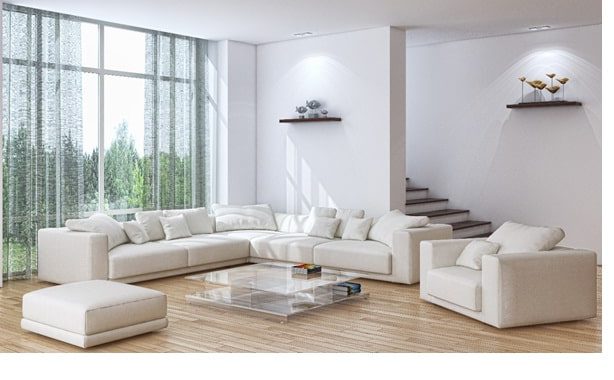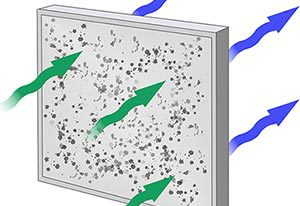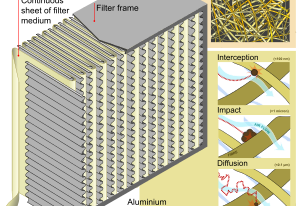- As you get older, some things may become more important to you. Shorter commutes, regular exercising, healthier food choices, clean drinking water, and most importantly, access to cleaner air.
Regardless of whether you are a healthy person, an adolescent, a teenager or someone nearing retirement, you must ensure that you protect yourself from the after-effects of breathing polluted air, both outside and inside your home.
While it may take substantial legislative changes and interventions to improve the air quality outside, you can quickly sanitise the air inside your home, with the help of an air purifier.
Which brings us to the topic at hand, how to choose a purifier that is best for your home and should you be concerned about the type of filter used in the purifier? Here, we will help ‘clear the air’ around the world of air purifiers and the various filters used in them.
Types of Filters Used in Air Purifiers
When you search online for air filters used in purifiers, you may come across two common types – ionic/ioniser and HEPA.
Ionic or ioniser filters can further be categorised into electrostatic precipitators and ion generators.
Electrostatic precipitators work on the principle of charged ion dispersion into the air via corona discharge. These charged ions then attach themselves to the airborne particulates.
Subsequently, the particles are collected onto a flat plate that bears an opposite charge to that of the ions.
On the other hand, ion generators disperse charged ions into the air; however, these purifiers do not have any collecting plates. Also, these devices produce charged ions by either UV lights or corona discharge. But what happens to the particles in the air if there is no collecting plate and if they are no longer in the air inside?
Simple, the particulates stick on the nearby surfaces in the room including the furniture, the ceiling and walls.
Comparison between the two filter types is as follows:
| Electrostatic precipitators | Ion Generators | |
| Sold As | Standalone fan-less devices | Either in combination air purifiers as a built-in feature or as an independent device |
| Working Methodology | Charged pollutant particulates are collected onto plates placed inside the device | Ions are released from the device into the air to change particles outside |
| Is Ozone (Pollutant) released? | Yes, in large concentrations | Ozone production depends on the ion generating method |
Should Ionic Filters and Purifiers Be in Use?
While ionic filters and air purifiers were initially well received, their downfall was brought about by an investigative report published by Consumer Reports magazine and a study conducted at the University of California. These ionic purifiers were tested against fan-driven air purifiers.
The results showed that ionic air purifiers fared poorly in air cleaning volume, just because they are usually a fan-less device and produced far more ozone than the regulation amount, as a by-product.
Ozone, as per the EPA, is an irritant that can cause serious health concerns such as chest pain, shortness of breath, coughing and throat irritation. To avoid any potential ozone-build-up; therefore, it is recommended that you skip buying air purifiers with ionising features altogether.
Ionizers filters are dangerous and cause of serious concern. There are more than a few risks associated with ionizers filers, including:
-
Ozone
Some ionic and electrostatic filters produce ozone which can react with other material in the indoor surroundings. The result of this reaction is formaldehyde – a compound known to cause cancer. Ozone and formaldehyde lead to reduced respiratory function and compromise on the body’s ability to fight respiratory infections.
-
Black Wall
Ionic filters can also cause “black wall effect” – that can darken the walls and furniture. The particles can also land inside the respiratory tract and cling on the air passage walls.
So, avoiding ionic and electrostatic air purifiers and filters is highly recommended.
HEPA Filters Are the Industry Standard
While High-efficiency Particulate Air (HEPA) technology has been there for many decades, it was in the year 1963 that Manfred and Klaus Hammes, the founders of IQAir, designed and introduced the world’s first residential air filter, which was based on HEPA technology and was quite successful in reducing chronic asthma symptoms as well as indoor pollution.
It was not long after when the U.S. Department of Energy (DOE) decided to implement the technology as a mandate for all air filters. As a result, any air purifier replacement filters sold under the name “HEPA” had to be able to remove at least 99.97% of all airborne particles, equal to or larger than 0.3 microns in size. You can buy these air purifier replacement filters from BreatheEasy to be sure of the quality and purchase.
Since then, many manufacturers, including IQAir, have built upon the HEPA model to develop even more efficient air filtration systems. One such advancement, IQAir’s patented HyperHEPA filters can remove up to 99.5% of ultrafine particles, down to 0.003 microns in size.
Essentially, these filters capture airborne particulates from moving air using a random, dense arrangement of fibres.
Overall, HEPA filters are simple in operation but exceptionally useful. Therefore, HEPA filters are now considered as the standard issue for most popular air purifier models available in the market.
The Air Quality Inside Your Home is Dependent on the Choice of Filter
In today’s world of impure air all around, air purifiers are no more a luxury. Instead, they are a necessity for your home. Thus, you need to be diligent in choosing a purifier model that is best able to purify the air inside your home with utmost efficiency.
You must pay close attention, especially to the type of filtration used in the purifier and make sure that it is HEPA compliant and does not release ozone during operation. You can go for a premium air purifier model from reputable manufacturers such as IQAir, which offer a comprehensive range of HyperHEPA filters and air purifier replacement filters for your home. The entire range of air purifier replacement filters is available online.







